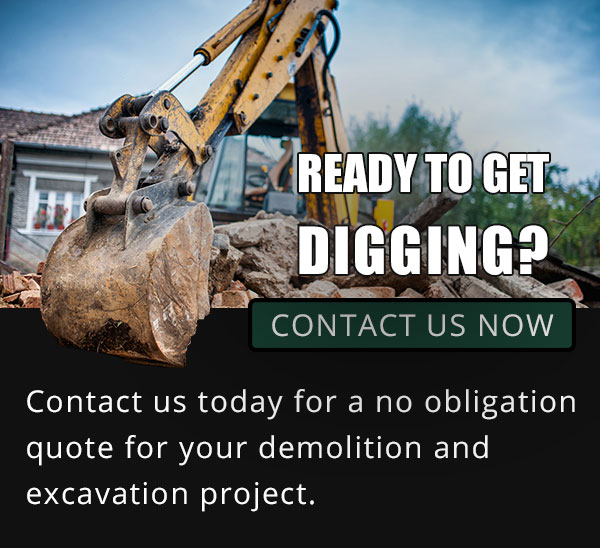Why Are Test Pits For Soil Testing Important for Construction Projects?
Whether you’re building a large retail shopping center or a home, soil testing should be one of the first steps you take. Site investigations help you better understand the soil on which your building will stand. If it happens to have a low bearing capacity, you could find yourself having several foundation and structure problems immediately or down the road.
Not only can soil determine potential safety hazards, but it can also raise awareness of financial risks. After all, you won’t want to invest money in building a house that could come crashing down one day. Even in less severe cases, you could find yourself constantly spending money to maintain the foundation.
When you hire a team of geotechnical engineers, they use test pits to examine the site’s soil closely. From there, they can take that information and determine many design aspects. In fact, your soil test can dictate:
- Building Feasibility
- The Type and Depth of Foundation
- The Type of Materials Used
- Height, Size, and Weight of Building
- Any Modifications or Improvements to Soil
That’s not the only reason that you should examine ground conditions before you build. A soil test can help you identify many potential problems. However, there are also many factors to consider when you look at your soil. We know it can be overwhelming to take in all of this information, so read on to learn more about the importance of using test pits for soil testing.
Find Potential Problems Before You Start
With the help of geotechnical engineers, you can diagnose complications before they even occur. Test pits provide valuable insight into issues that could cost you more money in the future. The following are just a few of the potential problems you can spot with a soil exam.
Soil Contamination
Unfortunately, oil spills, chemical leaks, and other events can lead to soil contamination. Not only can this impact the properties of the soil, but it can also be a danger. For example, homes that rely on wells for water shouldn’t be built in an area where the soil has been polluted, as it could be a sign of possible water contamination. Testing the ground can help you decide whether you want to go through with remediation or if it’s better to abandon the project site.
Water Table Location
You can also use test pit excavations to determine the water table location. The water table is underneath the soil layer. It is typically where you would find more compact soil. The water then fills in the gaps in this area to create the water table.
It’s important to understand that the water table can rise or lower depending on rainfall. Therefore, its location would impact how deep your foundation could go. If you build in the water table, foundation shifting and basement flooding can occur.
Underground Oil Tanks & Structures
Did you know that many homes used to heat their home with an underground oil tank? Sometimes these tanks were left behind, so it’s important to dig a test pit to locate these systems. A soil trench can also help you find filled-in underground pools or other structures that might impact your construction plans.
Groundwater Pooling
For solid construction, you need to avoid areas that get oversaturated. This could cause the soil to shift and sink, which could crack and damage your foundation. Along with structural issues, it can also lead to flooding. Fortunately, your soil test can help you uncover areas with poor drainage.
Landslide Potential
Site investigations help engineers determine landslide risk. This type of test is especially important if your construction site sits close to a mountain or hillside. While these sites might provide beautiful views, they could be dangerous for construction. Even if you are able to build the home, it could be hazardous to live there if landslides are likely.
Factors to Consider When Testing Ground Conditions in New Jersey
When you are testing ground conditions, there are several factors you must consider. These factors can help you determine which tests to perform. They can also help you make predictions when you add them to your findings. To make sure you get the most out of your soil tests, you should consider:
- The Project Type: Not all construction projects require the same testing. For example, if you are building a mine, the analysis would be much different from that of an amusement park site. The same could be said for comparing an apartment building site to a single-family home location.
- General Soil Classification: A quick preliminary test before digging trenches can tell you the general classification of the soil and rock. With this information, you can look at those soil properties and determine what type of further testing might be necessary.
- Groundwater Variation: As we mentioned, water tables can rise and lower. These changes can greatly impact the stability of the ground. Therefore, you should always keep groundwater variations in mind.
- Costs for Testing: If you are working with a limited pre-construction budget, you might not have the option to run every imaginable soil test. For that reason, you should prioritize the ones that would provide the most valuable information for your project.
- Variation in Soil: You should never expect that soil is uniform throughout one site, especially if it is large. Instead, it would help if you dug multiple test pits for soil testing to give a more accurate reading. Still, you should always keep in mind that things may be different in unexcavated areas.
Hire Experts to Dig a Test Pit for Your NJ Construction Site
If you would like to hire professionals to dig test pits for soil testing, you’ve come to the right place. At Mikula Contracting, we have plenty of experience with excavation for soil evaluations. Therefore, you can count on our contractors to carefully dig holes throughout your construction site. You can call our helpful service representatives to learn more about our excavation services, or you can submit our online form to request a free quote.



